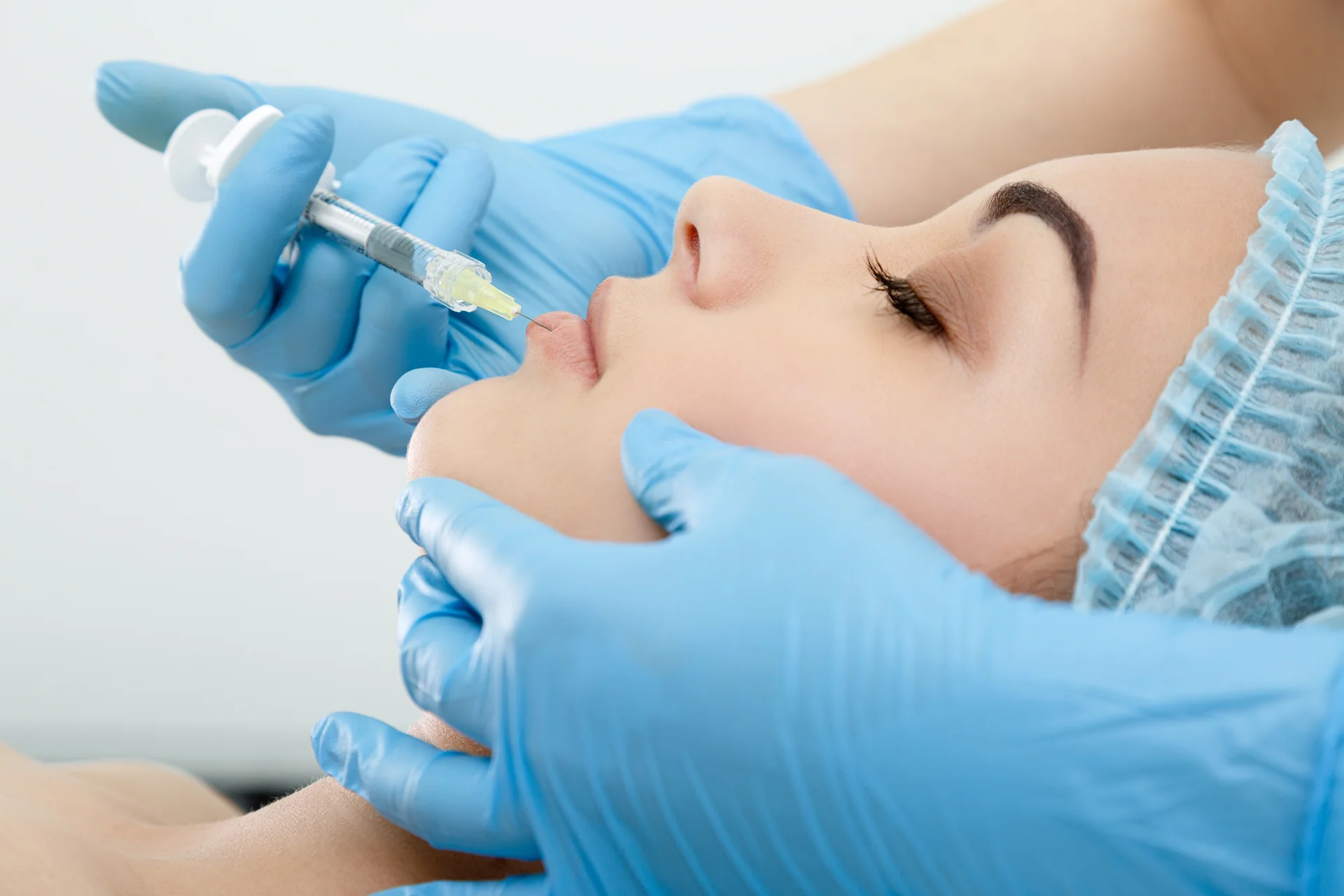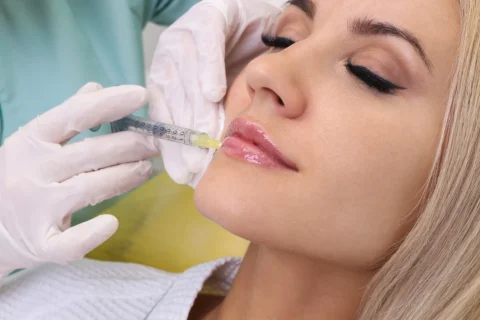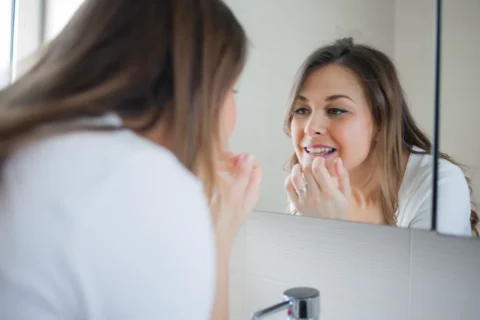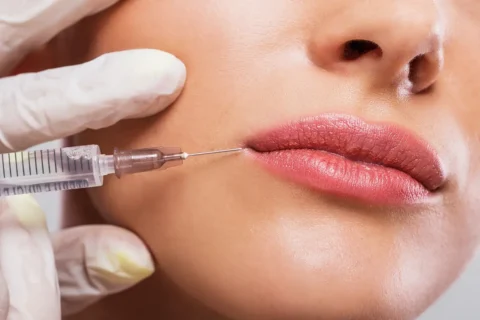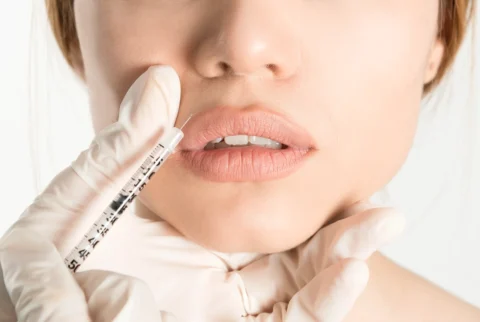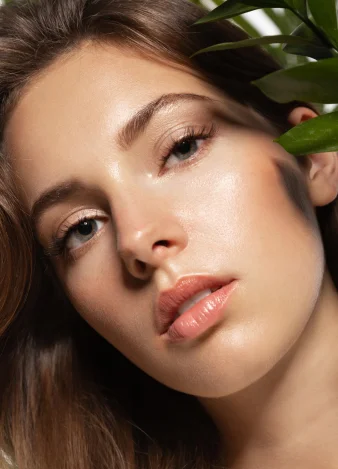While lip fillers, in theory, are considered low-risk for breastfeeding mothers, it’s best to consult with your healthcare provider before proceeding. This will allow you to discuss potential risks, explore alternatives, and determine the most suitable timing for this cosmetic procedure.
The desire for plump lips doesn’t disappear just because you’re a new mom. If you’re breastfeeding and considering lip fillers, you’re likely wondering: Is this safe for me and my baby?
While lip fillers are generally considered a safe cosmetic procedure, there are some important factors for breastfeeding mothers to consider before making this decision.
What Are Lip Fillers and How Do They Work?
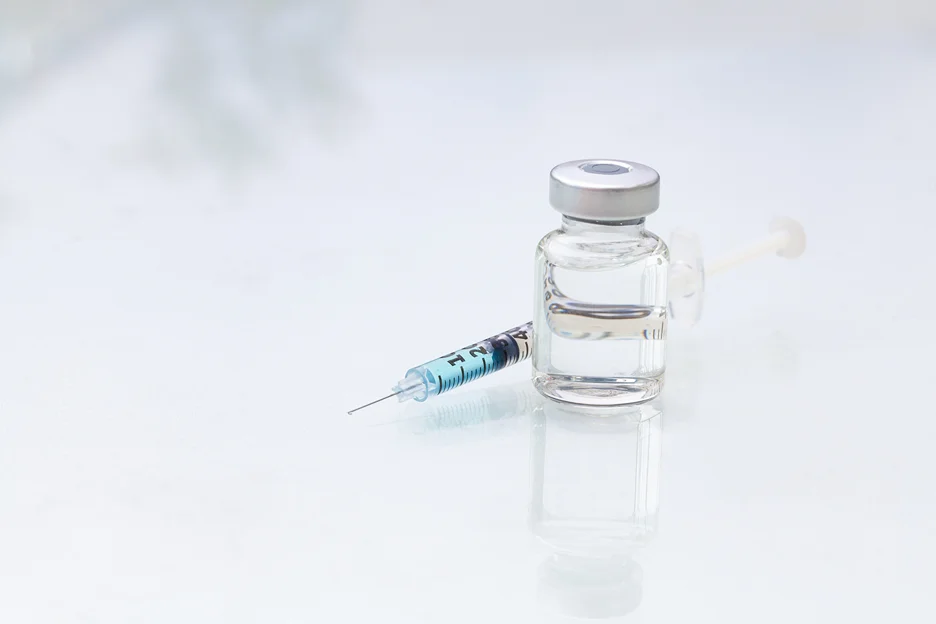
Lip fillers are injectable products used to add volume and definition to the lips. The most common lip fillers today contain hyaluronic acid (HA), which is a naturally occurring substance in the body. Brands like Juvederm, Restylane and Volbella are hyaluronic acid fillers.
During a lip filler treatment, the provider will inject small amounts of the filler product into specific areas of the lips using a very fine needle. The hyaluronic acid attracts and binds to water molecules, creating a plumping effect that smooths out wrinkles and vertical lip lines.
Lip fillers provide gradual results that can last 6-12 months before they are naturally absorbed by the body. Most patients need periodic touch-up injections to maintain the desired effect.
Are Lip Fillers Generally Considered Safe for Breastfeeding Mothers?
The use of cosmetic injectables like lip fillers falls into a gray area when it comes to safety during breastfeeding. Here’s an overview of what experts say:
- Dermal fillers are believed to carry low risk: In general, dermal fillers like Juvederm and Volbella are considered low risk during breastfeeding. The localized injections are not thought to enter the bloodstream or be transferred to breastmilk in any significant amount.
- No large-scale studies have been conducted: There is a lack of scientific research specifically looking at lip filler safety during breastfeeding. No large clinical trials have been done, due to ethical concerns.
- Off-label use: Using lip fillers while breastfeeding is considered “off label.” This means the products don’t have FDA approval for use during lactation, so there is less evidence available.
- Most sources say risk is very low: Based on the pharmacology of hyaluronic acid fillers, most experts believe they carry very little risk during breastfeeding. But more controlled studies are still needed.
The consensus is that lip fillers are likely quite safe during breastfeeding, especially when used after pregnancy. But because data is lacking, many providers remain cautious.
What Are the Potential Concerns About Lip Fillers and Breastfeeding?
While considered low risk, here are a few potential concerns that have been raised:
- Lidocaine: Fillers often contain lidocaine to reduce injection discomfort. Lidocaine is considered safe in small doses, but larger amounts could potentially enter breastmilk.
- Infection: As with any injection, there is an extremely small risk of infection. Postpartum women may be slightly more susceptible as their immune systems adjust.
- Allergic reaction: Allergic reactions to hyaluronic acid fillers are very rare but could potentially occur. Redness, swelling and itching at the injection site are more common.
- Lack of research: Again, the lack of scientific studies specifically looking at lip filler ingredients and breastfeeding leads some providers to recommend waiting until breastfeeding ends.
So while not common, the risks are worth discussing with your provider before deciding to have lip fillers while breastfeeding.
Are There Alternatives to Lip Fillers for Breastfeeding Moms?
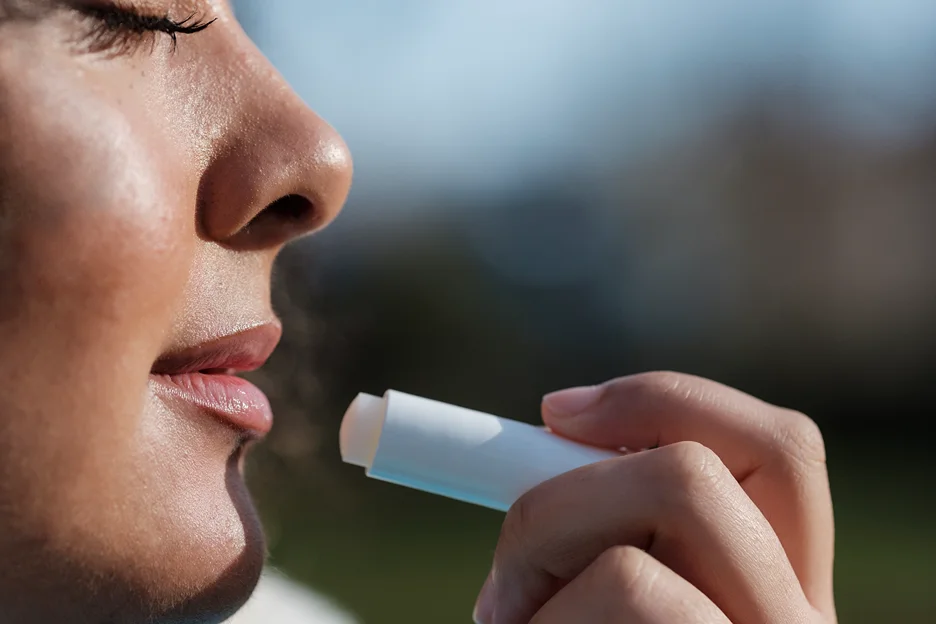
If you decide to hold off on lip filler injections until after breastfeeding, there are non-injectable alternatives to consider:
- Lip plumping glosses and balms: Products with ingredients like cinnamon or menthol create a tingling sensation and temporarily plump lips.
- Hydrating lip masks and scrubs: Keeping lips exfoliated and well-moisturized helps smooth the appearance.
- Lip primers and liners: Color-correcting lip primers can reduce the look of fine lines. Lip liners boost definition.
- Cosmetic acupuncture: Very fine needles are used to stimulate collagen and blood flow for firmer, plumper looking lips.
- Microneedling: This treatment uses tiny needles to prompt collagen regeneration. It can be used very gently around the lips.
Discuss any products or in-office treatments ahead of time with your provider to ensure they are safe for use during breastfeeding.
Should I Consult My Doctor About Lip Fillers Before Breastfeeding?
It’s strongly recommended that breastfeeding mothers consult their physician or plastic surgeon before considering any injectable cosmetic procedures, including lip augmentation.
Here are some important discussions you should have:
- Review your health history and any conditions that could increase your risk of side effects from fillers.
- Look at before photos together and talk about what cosmetic concerns you want to address with lip fillers.
- Ask about any precautions you need to take before, during or after lip injections while breastfeeding.
- Understand the potential risks and side effects, even if they are very low.
- Discuss options besides lip fillers that may be suitable for you during breastfeeding.
- Ask how long to wait after birth before it is safe to have cosmetic injectables.
Having an open and honest dialogue will help ensure you get the best advice tailored to your situation.
If I Get Lip Fillers, Will It Affect My Breastmilk or Nursing?

The limited evidence available suggests lip fillers are unlikely to have any significant impact on breastmilk itself or the safety of nursing. Here’s what to know:
- Minimal transfer to milk: Due to the localized injections, very little (if any) filler product is believed to make its way into breastmilk. No “pumping and dumping” is recommended.
- Safe for nursing after: Most experts advise waiting 4-6 hours after getting lip fillers before breastfeeding again, to allow the possible trace amounts of anesthetic to clear.
- Monitor for changes: Watch your baby for any signs of fussiness or sensitivity that could potentially indicate a reaction. Changes in nursing pattern may warrant checking with a pediatrician.
- Effect on milk supply: Keep an eye on your milk production, as rarely women report a temporary dip after fillers. Be diligent with breastfeeding to maintain supply.
Barring any unusual circumstances, breastfeeding can safely resume shortly after getting lip fillers. But do stay alert to your baby’s cues just in case.
What Precautions Should I Take With Lip Fillers While Breastfeeding?
If you plan to go ahead with lip fillers, taking the following precautions can help minimize any risks when breastfeeding:
- Time the procedure after your milk supply is well established, generally at least 6 weeks postpartum. Avoid getting lip fillers right after giving birth.
- Select an experienced, board-certified plastic surgeon or cosmetic dermatologist to perform the injections.
- Opt for a hyaluronic acid filler as your first choice since they are well-studied and carry lower risks.
- Use the minimum amount of filler needed to achieve subtle enhancement for a natural look. Don’t overdo it.
- Avoid combining lip filler injections with any other cosmetic treatments in the same visit. Space procedures out.
- Arrange for childcare help after the procedure so you can rest and focus on recovery.
- Stay well hydrated before and after injections to support healing.
Following safety best practices will help you feel confident about your choice to have lip fillers while continuing to breastfeed.
The Takeaway: Are Lip Fillers OK While Breastfeeding?
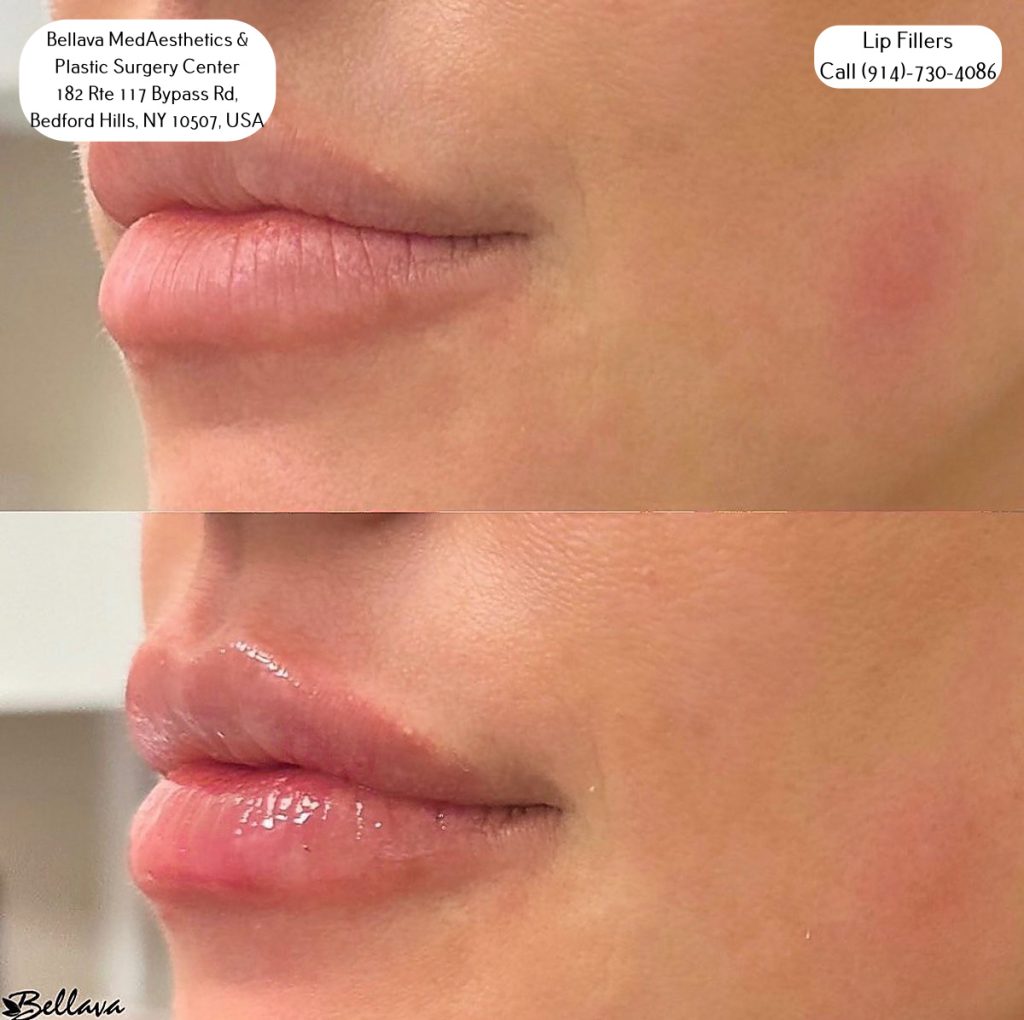
The bottom line is that breastfeeding mothers need to consider the potential risks and benefits of non-urgent cosmetic procedures on an individual basis.
Lip fillers fall into a gray area for safety during lactation, but based on expert opinion and available (limited) research, they likely pose very little risk when used judiciously. Still, a careful discussion with your healthcare provider is strongly advised.
While not conclusively studied, lip fillers can seemingly be a reasonable option for many postpartum women who wish to gently enhance their lips while nursing. As always, being informed and talking with your doctor will help guide the decision that is right for you.
